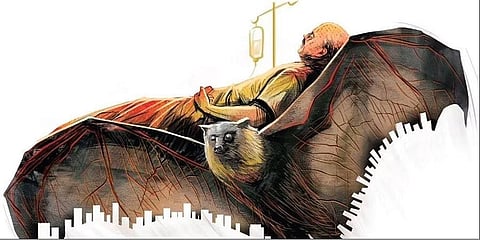

BENGALURU: The Karnataka health department is now planning to conduct checks on areas bordering Kerala and people travelling. This is after the Union Health Ministry and the Kerala health department confirmed two deaths in Kozhikode due to Nipah virus.
The state will hold a video conference with deputy commissioners and health officials of the districts bordering Kerala on September 13. These will include Kodagu, Chamarajanagar, Mysuru and Dakshina Kannada.
D Randeep, Commissioner, Health and Family Welfare, Karnataka said the state will order the community health centres (CHC) and the public health centres (PHC) in these areas to check for any cases reported with symptoms similar to Nipah virus. An action plan will be formulated and an advisory will also be issued.
Officials in the health department said that action plan will not just be limited to bordering districts, but for the entire state, especially transit points.
The last Nipah virus outbreak was reported in Kozhikode in 2021 and the state authorities had issued an alert for Mysuru, Mangaluru, Chamarajnagar and Kodagu. At the time, Karnataka also suspected a few cases but were not proven positive.
The Nipah virus is a zoonotic disease of public health concern in South East Asia according to the World Health Organisation. Earlier, outbreaks have shown a seasonal pattern with occurrence during winter and spring, associated with the breeding season of bats, increased virus shedding season for bats and the fruit harvesting seasons.
Dr Ramesh K Kaulgud, ex-project director for Integrated Disease Surveillance Programme (IDSP), Karnataka, explained that the number of diseases transmitted from animals to humans including corona virus, nipah virus, rabies or the tick-borne Kyasanur Forest Disease (KFD) have increased overtime.
ighlighting the need for “One Health Initiative”, he added that there is a need to enhance surveillance towards zoonotic, environment and human-related diseases. All departments (health, veterinary and environment) must cohesively work together to create strategies to eliminate the incidence of zoonotic diseases and a habitat protected from all diseases.